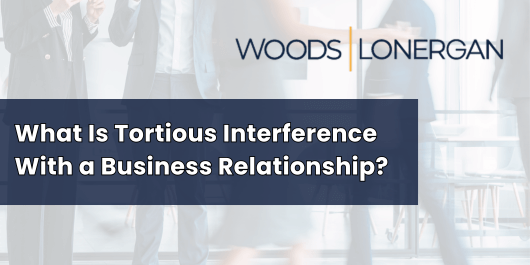
Competition between businesses can become intense. But when a competitor’s efforts to gain an advantage over your company cross the line from fair competition to unlawful conduct, you have the right to take legal action against them. If a competitor intentionally destroys or attempts to destroy your company or anticipated business relationships, you may have a tortious interference claim against the competitor.
A tortious interference claim can provide your company with relief from ongoing interference and compensation for your business’s ongoing and future financial losses. To speak with an experienced NYC unfair competition and business practices lawyer, please call (212) 684-2500 or send us an online message today.
Key Business Relationships That May Become Subject to Tortious Interference
Tortious interference is a common law tort where a defendant wrongfully and intentionally disrupts a plaintiff’s contractual or business relationships, leading to damages. Ongoing relationships are key to any business’s long-term success, and when they’re jeopardized, so are the company’s prospects for survival.
Examples of business relationships that may become subject to tortious interference with business include those with:
- Customers,
- Employees,
- Vendors/suppliers,
- Contractors,
- Lenders/creditors,
- Distributors,
- Manufacturers, and
- Insurers.
These relationships don’t have to be formalized in a contract for them to be critical to your business’s future.
Regardless of their nature, competitors can jeopardize your company’s health and success by interfering with your business relationships, severing them either to degrade your company’s operations or to steal your partners and affiliates away to improve the competitor’s operations.
Types of Tortious Interference
You may have a tortious interference claim against a competitor that interferes with your company’s business relationships to harm your company or improve its own market share.
The law recognizes two types of tortious interference claims:
1. Tortious Interference With Contractual Relationships
This type of tortious interference claim arises when a party attempts to interfere in a business relationship governed by an existing oral or written contract, usually by inducing one party to terminate the contractual relationship.
2. Tortious Interference With Prospective Economic Advantage
This type of claim arises when a party attempts to derail a potential business relationship or contractual negotiations.
Establishing a claim of tortious interference with prospective economic advantage can prove more challenging than a tortious interference claim arising out of your company’s existing contractual relationships.
You must show that your company had a reasonable expectation of establishing a business relationship and it did not materialize due to a third party’s wrongful interference with your business relationship.
How Does Tortious Interference Occur?
Competitors can tortiously interfere with your company’s business relations in various ways, such as:
- Inducing your employees to work for the competitor in violation of the employee’s agreement with your company, such as by bringing your company’s confidential information with them or soliciting your customers or suppliers,
- Making fraudulent misrepresentations to your business partners to induce them to sever their relationship with your company, including false statements about the quality of your company’s goods and services, your company’s ability to fulfill contractual obligations, or your company’s financial health and future prospects (such as claiming that your company will soon file for bankruptcy),
- Filing baseless civil or criminal complaints against your business partners, asserting claims or charges arising from your partner’s relationship with your company, and
- Threatening economic or physical harm, such as threatening to blackmail your business partners if they don’t sever their relationships with your company.
Your Company’s Legal Options After Becoming the Victim of Tortious Interference
Tortious interference with a business relationship occurs when a party intentionally causes another to avoid entering a probable business relationship with a third party.
If a third party has tortiously interfered with your company’s business relationships, you may have the right to recover compensation and obtain other relief.
First, your company may have a claim to injunctive relief against the third party to prevent them from continuing to tortiously interfere with your company’s business relationships.
A tortious interference claim can also provide your company with financial relief for past and ongoing financial losses from losing an existing contractual relationship, such as:
- Lost sales,
- Hiring expenses to bring in new employees,
- Increased financing costs, and
- Switching costs to move to new suppliers/partners.
In a tortious interference with prospective economic advantage claim, your company can pursue financial recovery for the loss of profits your business expected to earn but for the interference.
Contact Our Business Lawyers Today
Has your company suffered tortious interference with its business relationships? Experienced legal counsel can help you protect your rights and interests.
Contact our law firm for an initial consultation to discuss your options for pursuing financial recovery for your company’s ongoing and future losses.
Get started today by calling (212) 684-2500 or sending us an online message.
